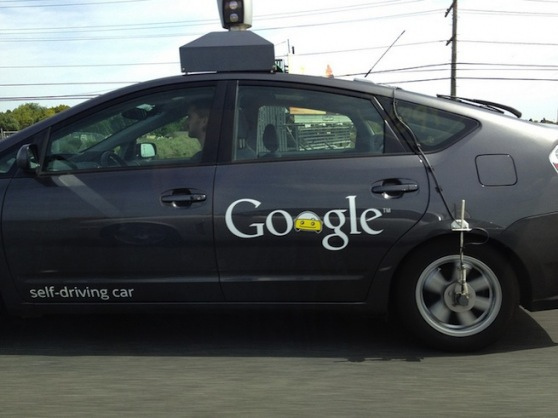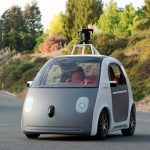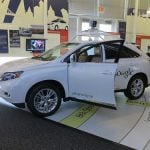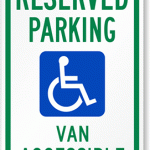3 reasons self-driving cars should be the norm
After spending your tax refund on an unexpected engine repair and driving twenty minutes in traffic just to find a parking spot that’s six blocks from your house, a self-driving car sounds pretty good. It could drop you off where you need, go park itself, and then drive back and pick you up when you’re ready to go out again. It could also help you keep your refund because, in the future, self-driving cars will be ownerless, part of a fleet that serves the greater public.

Three solid reasons why self-driving cars like this one may mark a shift toward improved vehicle safety. From Saad Faruque.
At least that’s one scenario offered by advocates of autonomous vehicles. Skeptics point to other possible futures: how those with means will be the only ones who can afford driverless technology and, even so, those cars won’t mesh easily with older models, which will still be helmed by humans. In the end, the much-ballyhooed tech will do little to decrease accidents or congestion.
But according to James Anderson, a senior behavioral scientist at nonprofit research group RAND Corporation, “the societal benefits exceed the costs” of driverless vehicles. Author of a recent report on self-driving cars, Anderson spoke last week at a Congressional briefing on the topic. Below are three reasons he’s betting the farm that self-driving cars will—and should—be the norm.
1. Lives saved
“Every driver believes that he or she is above average,” Anderson says, but most accidents are due to human error. Driverless cars would obviously lower that likelihood, providing the number one benefit of having more of them on the road.
“We can see the promise of this kind of technology exercised daily basis with crash-avoidance systems, cruise control, sensors that aid the driver, backup technology,” Rodney Slater, former U.S. Transportation Secretary, told the press. “You see it play out in small snippets. Now we have the possibility of combining all that with autonomous driving.”
2. Fewer parking garages, cheaper housing
Drivers and passengers want to park as close to their destination as possible, which is why there’s so much pressure to have as many garages, surface lots, and on-street parking next to housing and businesses. Autonomous vehicles relieve this pressure because they can drop their passengers off wherever and park farther than where humans would find acceptable. With that pressure gone, developers could devote more of their energies to residential infill, helping to lower housing costs.
3. Fuel and materials cost-savings
True, if autonomous vehicles drive farther for parking spots and gas stations, savings on fuel may not be as high as supporters of the technology believe. But such cars also use less energy than standard vehicles, and they brake and accelerate more efficiently than humans. And, if it turns out they’re involved in fewer crashes (still a big “maybe”), then they could be manufactured with lighter materials, which would also be more efficient.
Related Posts
Category: Parking Tech

















